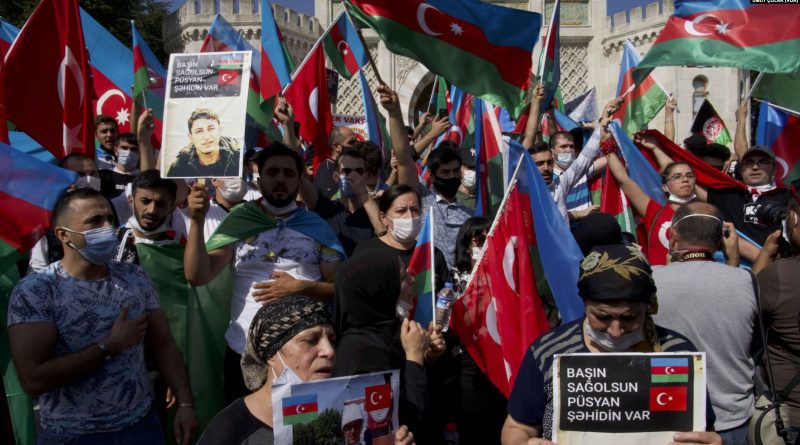Controversy over the Use of Cluster Bomb Weapons in Armenia-Azerbaijan Conflict
Taylor Knecht-Woytsek
Staff Writer
The international community are raising concerns over the recent discovery of the use of cluster bomb weapons in the Armenia-Azerbaijan conflict. On October 28, a strike over the Nagorno-Karabakh region was flagged by Azerbaijan, which accused Armenia of using cluster bombs in a civilian area. Wednesday’s attack killed 21 civilians and injured 70, The BBC estimates. This would be the deadliest reported civilian casualties in the conflict, according to Al Jazeera. The use of cluster bombs has come under scrutiny from international law scholars and human rights groups due to their significant impact on civilians.
The conflict, arising from a longer dispute over the territory of Nagorno-Karabakh, has resumed despite a recent ceasefire brokered by the U.S. and Russia. The region is recognized as part of Azerbaijan despite it being inhabited by a large Armenian population. The previous conflict in 1988 led to 30,000 deaths, according to BBC News. The recent attacks resumed in late September with skirmishes. Both sides have gained significant territory and have faced pushback from outside forces. Turkey openly supported Azerbaijan, according to the Associated Press, while Russia and the United States have tried to serve as peacekeepers.
The use of cluster bombs escalated an already deadly conflict. The Human Rights Watch (HRW) reports that Armenian forces used an internationally-banned cluster munition on Barda City. This came after the previous use of cluster munitions by Azerbaijan on four separate occasions, HRW reports. Cluster bombs are banned due to their long range and reach, caused by their ability to explode with dozens of smaller bombs ejecting. The specific bombs used are suspected to be Russian-made missiles, according to HRW.
The main contention against the use of cluster bombs comes not from the immediate explosion, but from the fact that the hundreds of bombs that get spread often misfire or sit dormant. This leaves a long-term threat to the region as these bombs often are active. In 2016, Amnesty International reported that 16 people were killed by unexploded cluster bombs in Yemen. The deaths came after a ceasefire had already been arranged and bombing had ceased for at least two months. The Arms Control Association finds that, “Almost all reported cluster munition casualties have been civilians, in large part because of the unwillingness of militaries to provide information.”
International agreements, such as the 2008 Convention on Cluster Munitions, ban the use of cluster bombs. According to HRW, Armenia and Azerbaijan are not party to the agreement, but are party to the Geneva Convention and its customary law. The massive burden imposed disproportionately on civilians violates many aspects of international law. Possible UN investigations may follow, as Reuters reports the UN Commissioner for Human Rights demanding that “Such attacks must stop and those responsible for carrying them out, or ordering them, must be held to account.” This was emphasized with the official report from The Office of The High Commissioner for Human Rights stressing the need to investigate and persecute any instances of violations.
Talks have led to a Russian-brokered peace deal between the two countries, CNN reports. Russian peace keeping units will be deployed along the border of the skirmish. The Armenian government has faced public pressure as this has been seen as a defeat by many of the citizens. Amnesty International released a statement condemning the use of cluster weapons by both sides. HRW has urged both sides to join the 2008 Convention on Cluster Munitions without delay. While many international organizations have strongly condemned the bombings, few if any countries have followed suit.
Image courtesy of VOA


